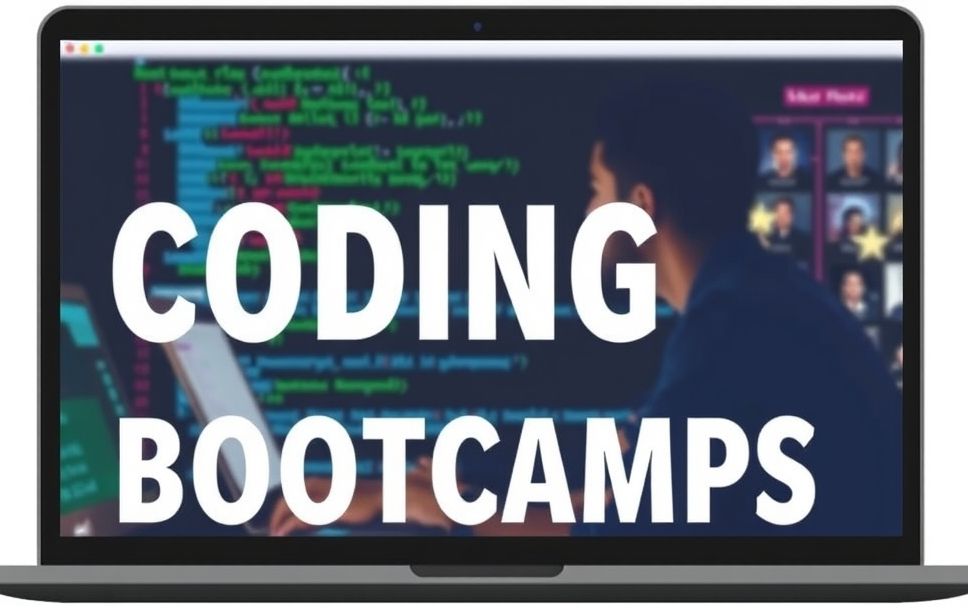Understanding Online Coding Bootcamps
Online coding bootcamps are intensive, short-term educational programs designed to teach programming and web development skills. They cater to individuals looking to transition into tech careers or enhance their coding abilities in a fast-paced environment. Unlike traditional degree programs, these bootcamps focus on practical skills and real-world applications, often completing their curriculum in a matter of weeks or months.
The Importance of Online Coding Bootcamps
With technology evolving rapidly, the demand for skilled developers has skyrocketed. Online coding bootcamps provide a viable solution for those eager to acquire programming skills quickly. They offer flexibility, allowing students to learn at their own pace while balancing work or personal commitments. As the tech industry continues to grow, these bootcamps have emerged as a crucial pathway for employment in web development and software engineering.
Key Features of Online Coding Bootcamps
- Curriculum Focus: Bootcamps typically cover a range of programming languages and technologies such as HTML, CSS, JavaScript, Python, and frameworks like React and Node.js.
- Hands-on Projects: Students engage in practical projects that simulate real-world scenarios, enhancing their problem-solving skills and providing portfolio pieces.
- Career Support: Many bootcamps offer job placement services, resume workshops, and networking opportunities with industry professionals.
- Community Engagement: Online forums and peer collaborations foster a sense of community, enhancing the learning experience through shared knowledge.
Real-World Applications of Online Coding Bootcamps
Graduates of online coding bootcamps often find themselves equipped for various roles in the tech industry. Here are some practical examples:
- Web Developer: Bootcamp alumni may work as front-end or back-end developers, creating and maintaining websites and applications.
- UX/UI Designer: With design principles covered in many curriculums, graduates can transition into roles focused on user experience and interface design.
- Software Engineer: A strong foundation in programming languages allows bootcamp graduates to pursue software engineering positions in diverse industries.
How to Choose the Right Online Coding Bootcamp
Selecting the right bootcamp can significantly affect your learning experience and job prospects. Here are key factors to consider:
- Curriculum: Ensure the bootcamp covers the programming languages and technologies relevant to your career goals.
- Instructor Quality: Research the qualifications and experience of the instructors. Experienced professionals can provide valuable industry insights.
- Flexibility: Consider whether the bootcamp offers part-time or full-time options, depending on your schedule.
- Alumni Success: Look into the success stories of past students to gauge the effectiveness of the program.
Practical Applications in Daily Life
Integrating skills learned from online coding bootcamps into daily life can be immensely rewarding. Here are some actionable steps:
- Build Personal Projects: Create a personal website or app to showcase your skills and creativity.
- Contribute to Open Source: Get involved in open-source projects to collaborate with other developers and enhance your coding skills.
- Freelancing: Use platforms like Upwork or Fiverr to find freelance projects that align with your skill set.
- Networking: Attend local tech meetups or online webinars to connect with other professionals in the field.
Related Concepts
Understanding online coding bootcamps can be enhanced by exploring related concepts:
- Self-Paced Learning: Unlike bootcamps, self-paced courses allow individuals to learn at their own speed, catering to different learning styles.
- Online Learning Platforms: Websites like Coursera or Udemy provide a variety of coding courses that complement bootcamp education.
- Tech Communities: Engaging in communities such as GitHub or Stack Overflow can provide invaluable support and resources.
Conclusion: The Future of Learning to Code
Online coding bootcamps represent a transformative approach to learning programming. They not only equip students with essential coding skills but also prepare them for the demands of the ever-evolving tech landscape. By choosing the right bootcamp and actively engaging with the learning process, you can set yourself on a path toward a fulfilling career in web development.
Consider what you’ve learned here and take the next step. Whether it’s enrolling in a bootcamp or starting a personal project, the journey to mastering coding is within your reach. Embrace the opportunity and start coding today!









